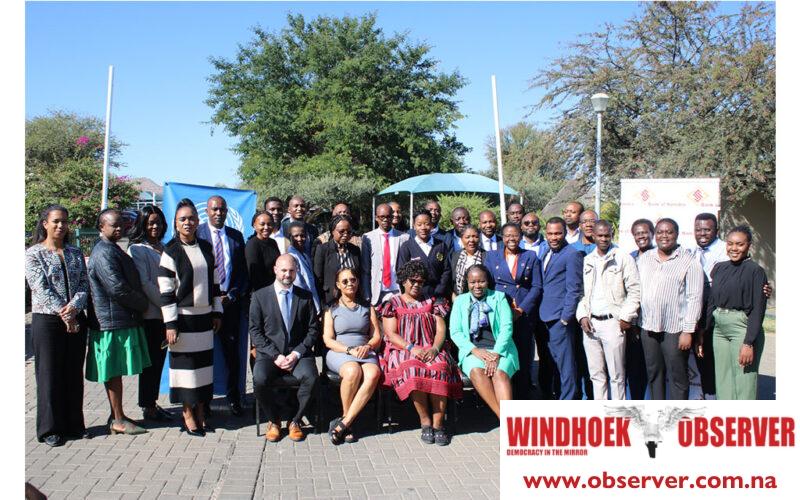Martin Endjala
Namibia is intensifying efforts against illicit financial flows (IFFs) that pose significant threats to its economic stability and global trade integrity.
Statistician Bojan Nastav emphasised the detrimental impact of IFFs, which include corruption, smuggling, and tax evasion, on Namibia’s socio-political and economic stability.
He made these remarks during the national technical working group’s workshop on IFF last week in Windhoek.
“The outcomes of the workshop will equip the future work of the national technical working group to measure tax and commercial illicit financial flows, identify policy gaps, and develop further estimation and policy recommendations,” he said.
Illicit financial flows, as defined by the International Monetary Fund (IMF), involve the cross-border movement of money that is illegal in its origin (e.g., corruption, smuggling), its transfer (e.g., tax evasion), or its use (e.g., terrorist financing).
Nastav warned that such flows can greatly affect the integrity of the global financial system by depleting foreign exchange reserves, diminishing tax revenues, and reducing government income.
The United Nations Conference on Trade and Development (UNCTAD) revealed that over the past three years, Namibia recorded a trade volume of N$682 billion, with imports at N$361 billion and exports at N$267 billion.
Deputy Minister of Finance and Public Enterprises, Maureen Hinda-Mbuende, acknowledged the positive record of global connectivity but raised questions on whether the trade was conducted under fair market practices.
“Were appropriate taxes paid on the exports and imports of these goods, and where these goods traded at accurate prices, were any financial oversight regulations breached during this trading?” she questioned.
Hinda-Mbuende stressed that if the answers to these questions are negative, Namibia must intensify efforts to measure and combat the pervasive issue of IFFs associated with international trade.
The national technical working group chairperson and deputy director for exchange control at BoN, Penelao Kapenda, said the fight against illicit financial flows is neither for the timid nor the fearful.
“I encourage the members of the TWG to seek assistance and be set for nation-building. “With the support of the international community, let us build the necessary capacity and identify the drivers of IFFs using refined and additional methodologies,” she said.
She reiterated that leaders must be diligent, influence policy changes for the generation, and enable the state, under the Namibian Constitution, to enact, administer, and enforce laws effectively, ensuring the recovery of Africa’s stolen assets through IFFs.
Since 2018, the TWG, under the guidance of the Bank of Namibia, has actively pursued an understanding of IFFs, uncovering over N$1 billion in fraud related to clearing and customs.
According to BoN, UNCTAD is leading a new cooperation initiative that includes a workshop to estimate the volume of illicit financial flows into and out of Namibia.
The bank plans to enhance policy measures, whether through the reinforcement of existing frameworks or the development of new legislative amendments.
The national technical working group, consisting of 14 member institutions, is responsible for gathering data and tackling issues such as tax and commercial malpractices, financial crime, fraud, and corruption.
The member institutions include the Bank of Namibia, the Namibia Revenue Agency, the Anti-Corruption Commission, the Namibian Competition Commission, and the Business Intellectual Property Authority.




